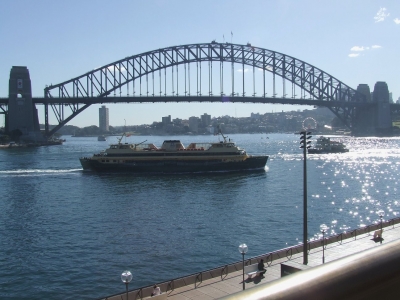Poems
Hooded eyes, eyelashes thinning, she tailgates a semi,
keeping up with him in case she breaks down.
The truckie has her measure in his rear-view mirror –
In the beginning he’d herd people
clocking up the hours in apartments
above and below him but they heard sink
and shower sounds and turned on washing
machines that spurted later while he was
on the job he’d reconsider part one of
his partner’s apparent lack of funding
proposal paperwork a black mark
To touch death in this manner: if our fingertips could pierce
that airless element, the body
breathing calm within its envelope of gas …
Morning took me to the jetty.
I saw the moon jellyfish pulse toward the air:
as their edges broke that barrier, the briefest spark appeared.
In the clear light of a cloudy summer morning
The idiot boy, holding his father’s hand,
Comes by me on the Quay where I sit writing.
His father spots me looking up, and I don’t want
To look as if I wished I hadn’t, so
Instead of turning straight back to my books
I look around, thus making it a general thing
That I do every so often –
To watch the ferries, to check out the crowd.
So there he was in the library, crouched above the floor
like a mousetrap, squinting into his rickety parallel edition
of the Satires. The paperback was from the late fifties;
Full-Bucket Moon
by Ross Clark
for Ted Kooser
I put away my eyes for the night.
I forget dreams,
perhaps I don’t have them any more,
not close at hand.
I’m not book-sick from the gloomy others.
I haven’t read a word in years.
In me, drink-nettles – I’ve a glass with the same stings,
and ice which comes out as clear sweat on
this side of my skin,
the right-way-up for drying.
... (read more)‘I wonder this wall can bear the weight of such words’
Graffiti on a wall in Pompeii

